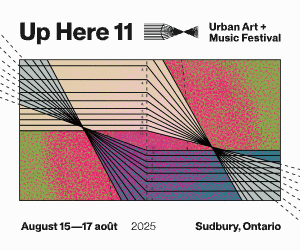Cassandra Jenkins Is Learning To Lean Into The Melodrama
After a demanding debut, the “sophisti-pop” songwriter returns with a new guiding light — her perseverance.
By Sophie Noel
Photos by Pooneh Ganah
- Published on
“Ready or not, it reinvigorated me,” she says of the plot twist, but the rise to indie acclaim also took a heavy toll. Jenkins spoke to RANGE about the aftermath of years on the road and the long process of fitting broken pieces together in different shapes until they held the form of an album. Surprising themes emerged, as threads picked up from An Overview showed up in the seams of her new writing: cryptic but affirming messages advocating for “choosing life when it could be very easy to quit.”
The resulting project, My Light, My Destroyer, out July 12 on Dead Oceans, is constructed of pinpricks of light that multiply and develop into constellations as the songs progress. Starting with a simply strummed acoustic guitar and spacious, hushed vocals, the album travels through compositions of found sound, field recordings, indie rock, and “sophisti-pop.” “New York City is endlessly stimulating, and I’m very impressionable,” Jenkins says of her home inspiring some of her musings. From this frenetic but comfortable vantage point, she takes in the chattering worlds around her and synthesizes them into crystalline explorations of human connection in her songwriting.
In contrast to An Overview, for which Jenkins “wrote and recorded the songs at the same time,” she had to strike flint for a long time before seeing the spark of her next project. “I thought that I could finish a record in a very brief time like I did the last one,” she reflects. “I was kind of banking on that happening again, in that same way.” It was an assumption that ended up clashing with her creative ambitions. Jenkins only discovered this dissonance upon dipping below the surface of a record she thought was finished. Coming up for air and looking around, she took in something that felt incomplete. “I had to work harder than I thought to make the thing that I wanted to make,” Jenkins says of the experience, adding that it was a discomfiting conclusion to draw when she felt that the well had run dry.


Running on fumes after years of touring temporarily changed Jenkins’ perspective on her work. “It dawned on me that I was just doing my job. When you realize that and it sits with you, it really starts to fester,” she says. Ever in pursuit of awe and wonder, Jenkins couldn’t live like that. “I thought, ‘Oh no, I’m phoning it in’. I was eager to stretch outside of the things I had made before. I didn’t realize what was required of me to grow in that way, at first.”
Through an alchemy of circumstance, collaboration, and perseverance, the path to the new record became illuminated. While explaining what shifted in her approach to shepherding the songs to their recorded forms, Jenkins mused about the paradoxical nature of working hard on songwriting. “You kind of risk making something feel laboured-over,” she observes. “There were versions along the way that felt so heavy with toiling. At a certain point, I realized that’s not what I want to share with the world, but I thought I could push past this toiling and start fresh.” Jenkins employed the image of scaffolding: all of those layers and drafts would serve the final product by giving support to new versions of songs that could be simple yet vital.
In “Only One,” a recent single, the chorus is concisely gut-wrenching: “You’re the only one I’ve ever loved/The only one that I know how to love.” The first half is hopeful, with a tinge of innocence that is dashed to pieces on the rocks of the second line. Jenkins describes the chorus as “myopic” and steeped in melodrama. “[It] kind of scared me for a while, because it’s pretty generic sounding as a chorus, but I couldn’t let it go.”
Earlier in the song, Jenkins invokes Sisyphus as an aside: a stick figure drawing seen in a massage parlour window. “It was one of the last lyrics that I wrote,” Jenkins says of the line, “and that song finally made sense to me.” Bringing a timeless reference into the world of “Only One” gave Jenkins artistic permission to lean into melodrama in the chorus. “In its essence, it’s a very heartbroken song,” she says. “I’m asking this eternal figure when my heart will stop feeling like it’s broken, you know? Because in that moment, it feels like it will always be that way.”

The subject of loneliness comes up repeatedly throughout the record, accompanied in turn by the natural and sublime: a recording of Jenkins’ mother, a science teacher, stargazing; an ode to the Earth’s atmosphere as seen from space; train sounds and flight attendants.
Jenkins’ loving tribute to a beautiful and dispassionate universe calls to mind Camus’ philosophy of the absurd: humans’ need to attribute meaning to existence in a random universe. Camus introduced this philosophy in his book The Myth of Sisyphus, and demonstrates it through the mythological character condemned to push a heavy boulder up a mountain only to have it roll down from the top, over and over again, forever.
Camus’ absurdism isn’t as nihilistic as it may seem, nor does he advocate for giving up on life itself. Instead, he claims that after allowing the absurd to be revealed, one must choose to continue despite it. “It’s basically a manual against committing suicide, which was so much darker than I ever realized,” says Jenkins. The idea struck a chord with her: “Sometimes it’s in doing the most mundane things that we can appreciate the simple beauties around us.”
Jenkins was struck by how meaningful this surprising connection was in relation to her last album, “which quietly had a lot to do with suicide.” An Overview was created after the death of David Berman, with whom Jenkins was set to go on tour. Jenkins says, “I feel like Sisyphus came to me to echo my desire to keep on being here.” She immediately noticed a similar theme in “Delphinium Blue,” the first single off the album. In the song, Jenkins is working in a flower shop and processing loss: “I’m doing these very mundane tasks over and over and over again, but through that whole process, I am making sense of my life,” she explains.
The way that My Light, My Destroyer came together in real time for Jenkins is mirrored in the experience of the listener. Slowly but surely, the constellations connect and small pockets of meaning coalesce into an illuminating, curious, and very-much alive record.
By Leslie Ken Chu
The rock stalwarts lean into vulnerability and nuance, proving that evolution doesn’t have to mean softening the blow.
By Cam Delisle
The pop veteran beamed into Rogers Arena Tuesday night with a glitchy arsenal of remixed hits—some faring better than others in her AI-styled end-of-the-world fantasia.













